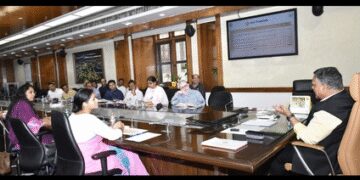New Delhi, 7 February (IANS). Air pollution is becoming a serious health problem worldwide. A new study recently paid attention to its health and economic effects on the elderly.
Researchers at Tokyo University, Japan found that the fine particles (PM2.5) in the air damage the health of the elderly and increase socio-economic problems in areas where health services are limited.
The PM 2.5 is very small pollution particles, which can reach deep in the lungs and blood flow during breathing. This can cause severe respiratory (respiratory related) and cardiovascular diseases. These particles are so small that the natural security system of the nose and throat does not stop them, causing more risk to the elderly.
According to Yin Long, the lead author of the study, Associate Professor Yin Long, “Our immunity becomes weak with aging, which is not able to prevent our body from pollution. Mild pollution can also increase diseases already, so that hospital The possibility of admission in and the risk of untimely death increases. “
Researchers paid special attention to Japan, where about 30% of the population is 65 years or older. He noticed that the elderly living in rural areas suffer more due to PM 2.5 pollution. These areas also have low health facilities, while better medical services are available in cities. For this reason, the economic cost related to this pollution is high in rural areas.
“Many rural areas do not have specialist doctors and advanced hospitals in many rural areas, which can treat diseases such as stroke and heart attack.”
Research also found that due to PM 2.5, many elders suffer from serious diseases, due to which they have to give up work before the plan. This affects their economic condition and their burden on the younger generation increases.
On analyzing the impact on the economy, it was found that due to diseases caused by PM 2.5 and mortality, economic losses in some areas could be more than 2% of GDP (GDP).
Researchers have warned that this problem is not limited to Japan only. Similar challenges may arise due to rising pollution rate and aging population in other countries including China and parts of Europe. Long urged the governments to identify the most affected areas and people and allocate resources properly.
Researchers suggested that pollution control should be tightened, investment in health services should be increased and the problem of cross -border pollution should be solved with international cooperation. Also, emphasis was laid on increasing greenery in cities and encouraging telemedicine.
-IANS
AS/






